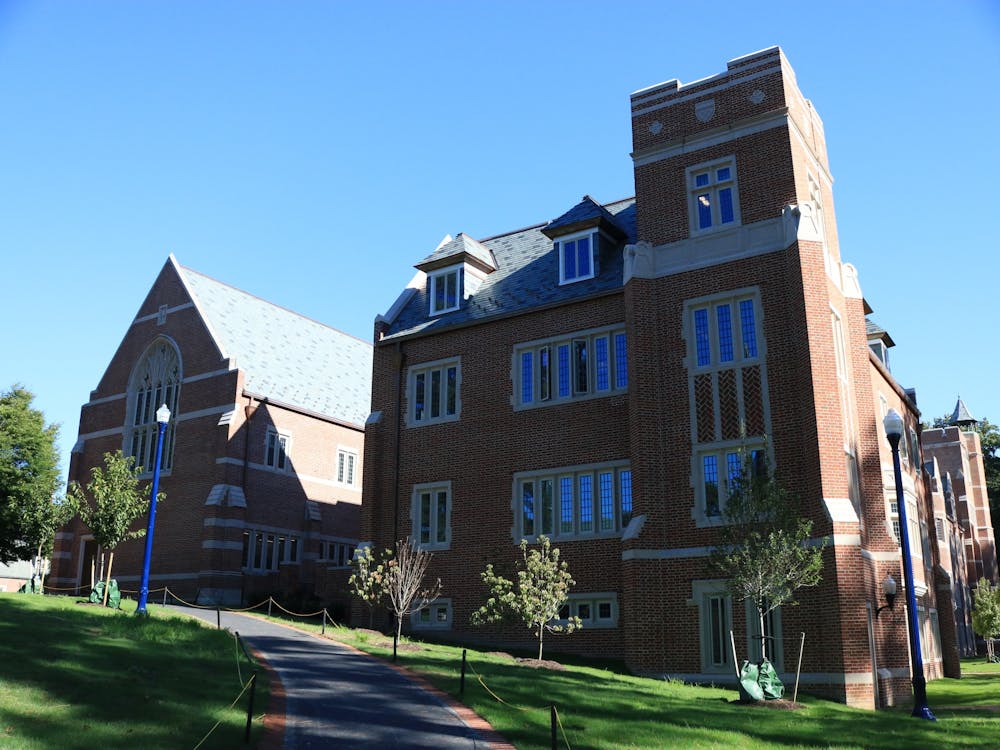Health workers at Virginia Commonwealth University gave health screenings and antibiotics to more than 700 students and staff members who may have been in close contact with a 19-year-old student who died on Oct. 24 from a possible case of bacterial meningitis.
There has been no official announcement about the cause of death. Meningitis was not the suspected cause, but as it could not be ruled out, health officials chose to take precautions.
After the death of the student, who was a music major living off-campus, VCU President Eugene Trani issued an alert expressing sympathy for the loss and announcing that antibiotics would be available free of charge for anyone who presented VCU identification at the school's Sports Medicine Building on West Broad Street.
Betty Reppert, VCU's director of Student Health, said she was pleased with how well the university implemented its emergency response system. The hospital that treated the young woman immediately notified the Student Health department, Reppert said, and they worked with VCU epidemiologists and the Richmond City Health Department to send out information.
Police and University Student Health Services staff directly contacted those who might have been near the student during the two days before her death via telephone and personal discussions in each of the woman's classes, Reppert said. Students learned of the warning through a mass e-mail and online bulletins. Although cell phone text messaging was not used in this case, the VCU Alert system set up that option after the killings at Virginia Tech in April.
Meningitis is an infection of the fluid surrounding the brain and spinal cord, and it can be caused either by a virus or bacteria, according to the Virginia Department of Health. The risk is slight, but people exposed to the bacterial form of meningitis could develop a serious illness. The infection could be spread through the exchange of respiratory and throat secretions, such as kissing, coughing and sharing eating utensils or drinks. The viral form of meningitis is less serious and contagious in adults.
The meningitis vaccine is required for all full-time students enrolling at public four-year colleges or universities in Virginia, VCU included, but can be waived for religious or medical reasons.
The University of Richmond does not require the vaccine, but it is highly recommended by the Student Health Center. The rate of vaccination among Richmond students is more than 90 percent. Students who choose not to be vaccinated must sign a waiver that acknowledges the risk and thereby assent to any actions considered appropriate in the case of a breakout, including being removed from campus.
Reppert said this was the first time she had responded to a possible meningitis emergency. But Richmond has dealt with several cases during the past 10 years. A Westhampton College student contracted bacterial meningitis in 2003; a Richmond College student contracted viral meningitis in 2002; a Westhampton College student had the same form in 2001; and three students contracted the bacterial form in 1999, according to Collegian reports.
The number of reported cases of infection in Virginia has dropped significantly in that same period.
Enjoy what you're reading?
Signup for our newsletter
Support independent student media
You can make a tax-deductible donation by clicking the button below, which takes you to our secure PayPal account. The page is set up to receive contributions in whatever amount you designate. We look forward to using the money we raise to further our mission of providing honest and accurate information to students, faculty, staff, alumni and others in the general public.
Donate Now


